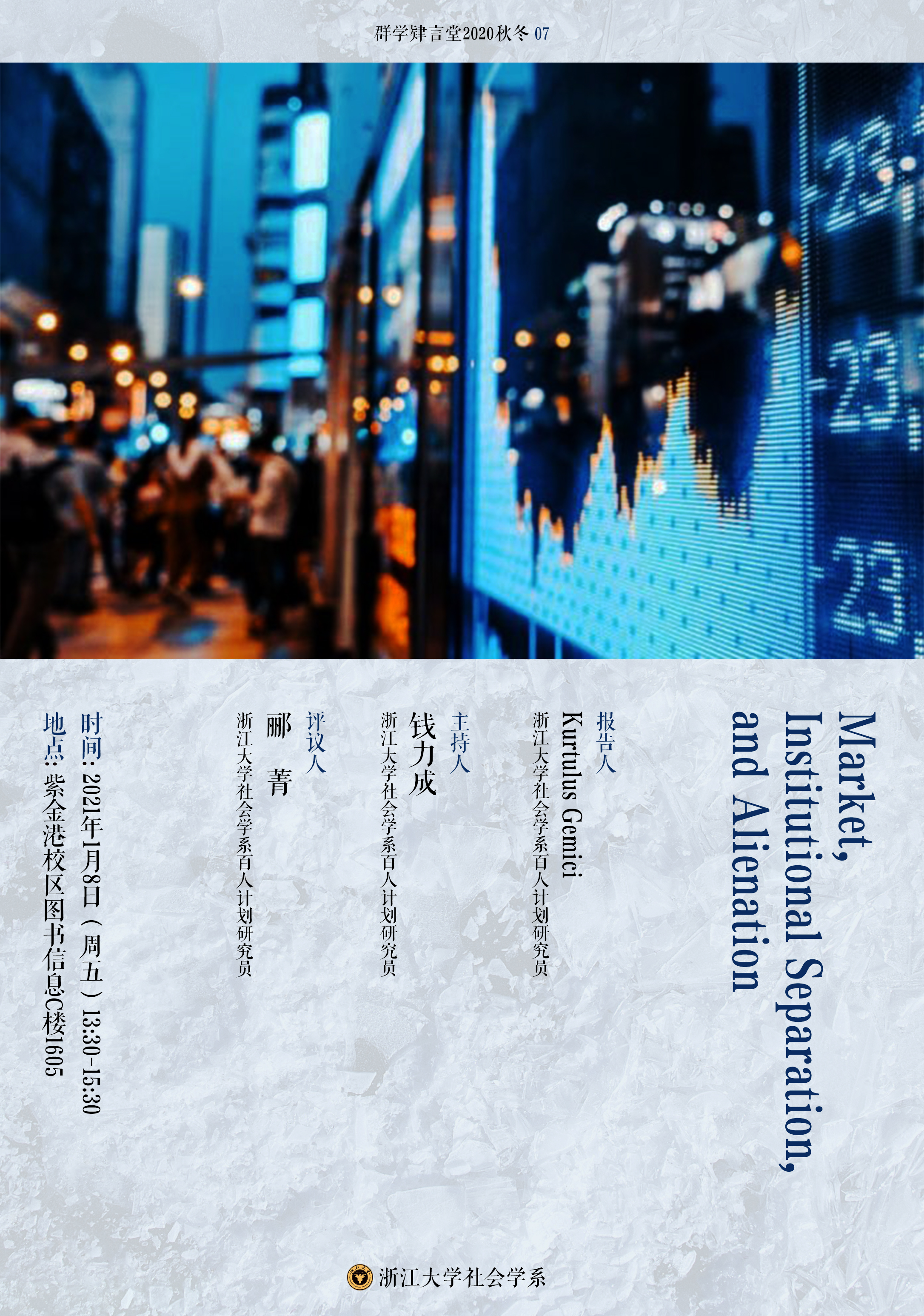
Time: 8 January 2021 (Friday) 1:30-3:30pm (Beijing Time)
Language:English
Topic: Market, Institutional Separation, and Alienation
Lecturer: Kurtuluş Gemici, Hundred Talents Researcher (Category A),Department of Sociology, Zhejiang University
Moderator: Licheng Qian, Hundred Talents Researcher (Category B), Department of Sociology, Zhejiang University
Commentator: Jing Li, Hundred Talents Researcher (Category B), Department of Sociology, Zhejiang University
Venue: Room 1605, Library Information Building C, Zijingang Campus
The introduction of the lecture
Institutional separation of the market under capitalism, which follows from the self-regulating character of the market, is a central proposition in Polanyi’s work. In this article, I suggest that what Polanyi misleadingly labels as institutional separation—misleading because no institution can ever cease to be social—has nothing to do with the supposed self-adjustment mechanism of the market. Instead, “institutional separation,” which portrays the market as a realm with autonomous and law-like tendencies, is an ideology; it is an outcome of social struggles over economic distribution—struggles that are shaped fundamentally by political power. This proposition is inspired by Polanyi but borrows from the political economy of Quesnay, Ricardo, and Marx to formulate a view of prices in a capitalist economy as both the cause and outcome of distributional struggles. As such, it rejects that prices are determined by scarcity and utility, and thus by supply and demand. Instead, the most fundamental prices—money wages, but also the relative prices of food, housing, and health as well as interest rates—are determined by factors that are exogenous to the capitalist market. Such a proposition has some far-reaching implications. In particular, it suggests that the market is alienating because it obscures, through the price system, the power relations that shape economic distribution. Furthermore, the alienation under market economy is at its most intense under liberal ideologies, since any variant of liberalism, including neoliberalism, mystifies and justifies even the most blatantly unequal distributive outcomes as the result of the self-adjusting operation of market forces.
